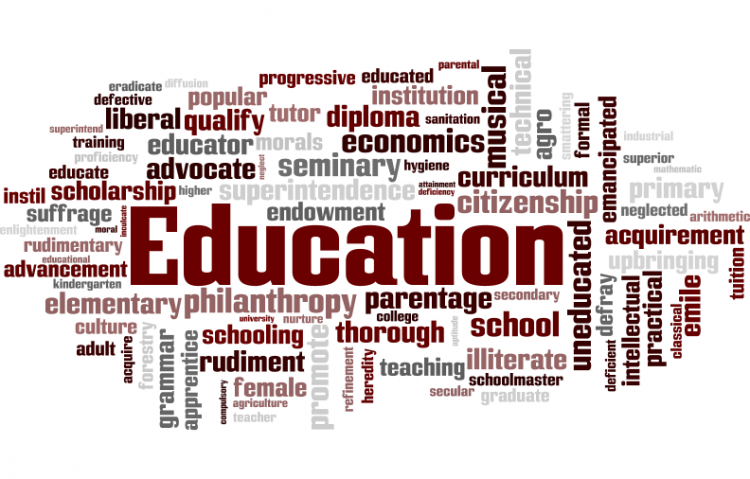
- Target:
- All elected officials
- Region:
- United States of America
From the desk of ...
Dr. Peg Luksik
I have been involved in the “education wars” for over two decades. Over that time, the nature of our argument has changed. We now spend all of our time trying to slow down the agenda of our opponents, and we are, frankly, losing that battle.
We need to stop quibbling about the details, and start promoting the principles that will make America’s schools once again serve America’s children.
Our nation’s founders knew that they needed a Declaration of the Truths on which it would stand. In our battle for the hearts and minds and futures of our children, it is time that we follow their example.
The following is my effort to do so.
I plan to present it to our elected officials, at every level, and to use it to develop real answers in education. If you would like to join me in this effort, simply sign onto the Declaration with your name and state. Every name will be included when the statement is delivered.
You will notice that no organization is mentioned in the Declaration. That is intentional. I am a parent, a grandparent, a teacher, a taxpayer and an American citizen, and I personally wrote the Declaration. I am asking you to sign it as an individual as well.
Our forefathers gave us America’s past. Our children need us to give them America’s future. I know that together, we will not let them down.
Declaration of Education Principles
Dr. Peg Luksik
We, the undersigned, submit this statement of principles that we believe should be the underpinnings for any meaningful discussion of education reform. Although the principles are separately enumerated, they express one philosophy, and are therefore not severable.
Principle One: Our children are the clients of the education system.
Any successful system identifies its clients, makes all decisions based on the needs of those clients, and evaluates its programs based on how well its clients were served. Our schools were created to serve our children, so we should be making decisions and evaluating our programs based on their needs. The business community may, and indeed does, have an interest in successful education, but our schools were not created to serve business, so our educational policies must be based not on what business wants, but what children need.
Principle Two: Every child is unique.
Standards-based education, whether those standards are Common Core or state specific, is based on the premise that a government mandate can change the way that children learn; that it can make individual differences in abilities and development disappear so every child will learn the predetermined information at the predetermined time. Current efforts to reform Common Core do not challenge this premise. Yet the reality is that every child is different, and that in any classroom there is a wide, and normal, range of developmental levels and aptitudes. A system that does not recognize and respect those individual differences not only cannot succeed, but will damage the hearts and minds of countless children in its failure. The content of the standards is not the fundamental problem – the problem is a system that refuses to recognize the uniqueness of every child.
Principle Three: High-stakes state assessments are never appropriate evaluation instruments.
High stakes state assessments are defended in the name of accountability. Advocates tie student promotion, graduation, and academic programming, and teacher evaluation to the results of the tests. In fact, there is nothing about them that would enable us to realistically assess educational performance. Such assessments are not valid or reliable. Test results are often measuring extraneous factors such as emotional distress, poor nutrition, or illness, with no possibility of determining what is affecting the score of any individual child. The New York State Department of Education found a direct connection between test scores and the socio- economic level of the children, with lower scores linked to higher poverty. This is a system that measures poverty and then punishes children for being poor.
Principle Four: Children have the right to determine their own destinies.
American education was developed on the premise that a child’s past did not have to determine his future. But the practice of collecting data from pre-school on, and then using that data to “assist” children to select their career paths before they even begin high school flies in the face of that premise. It is improper to expect thirteen-year-old children to make such serious life decisions, and basing their subsequent educational paths on their uninformed choices is a disservice to them, and to the larger American society. It is correct that society needs a well-educated citizenry for economic well-being, but the definition of well-educated should not be limited to the skills one needs to do a job. Education is more than workforce development, and children are more that future workers.
Principle Five: Local control is a necessity.
Federal involvement in education has increased costs, bloated administrative bureaucracies, and turned our schools into political battlegrounds where concern for the needs of the children has all but disappeared. Effective education reform begins with ending Washington’s role in education. True local control, with state-level oversight, ensures that schools can respond to the needs of their children. Local control enables parents to exercise their rights and their responsibilities as primary educators in a meaningful way, and allows teachers to work with those parents effectively, so every child can receive the education that meets their needs.
You can further help this campaign by sponsoring it
The Statement on Education Policy petition to All elected officials was written by Karen Bracken and is in the category Education at GoPetition.